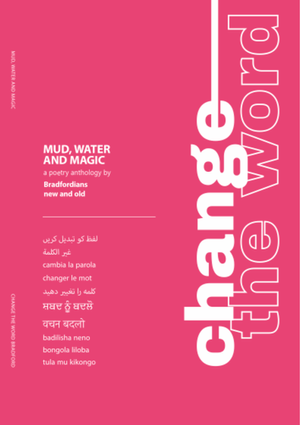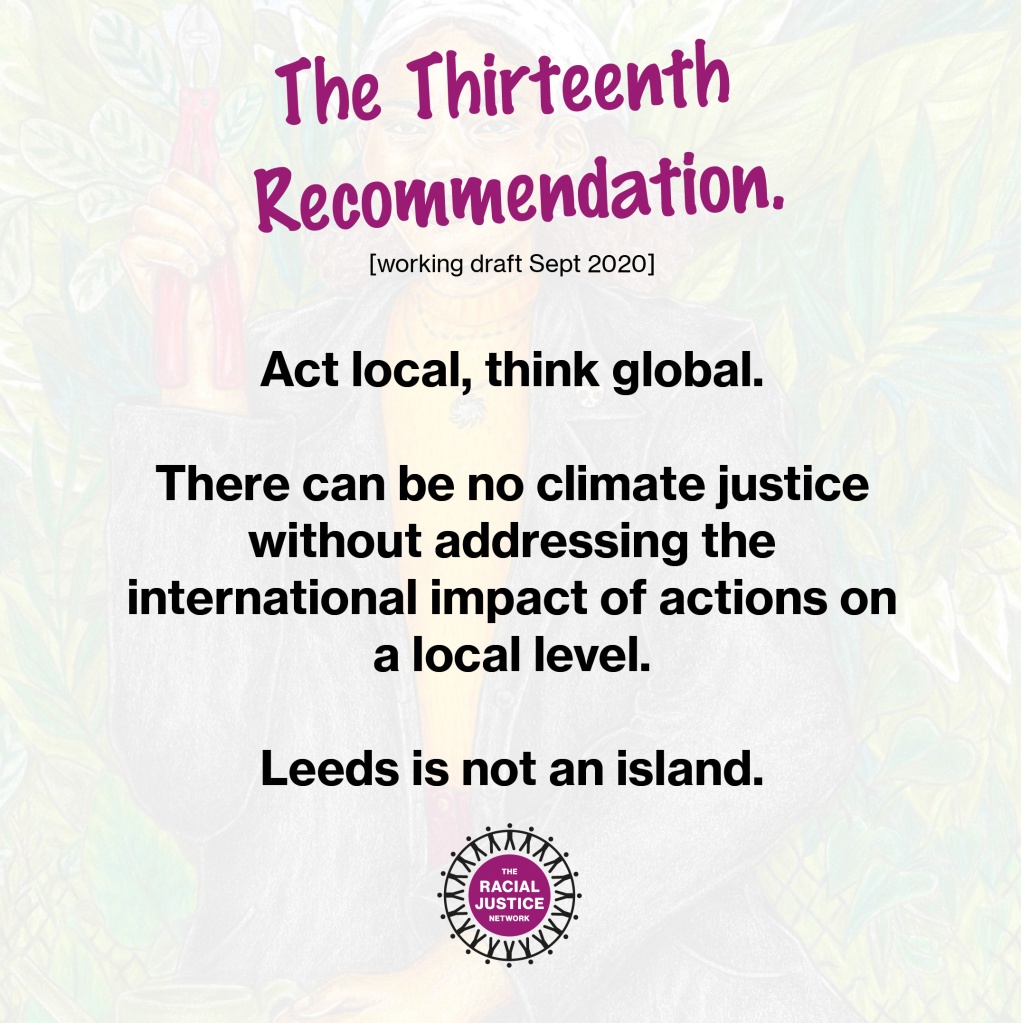Introduction to MUD, WATER AND MAGIC, The Change the Word Anthology Bradford by Sai Murray and Saoirse Teale

Over the eight weeks of workshops in which these poems were created, we have seen this country change governance under no less than three different Prime Ministers. And two reigning monarchs. During these ruptures in the ruling order, we commoners have gathered together to write, eat and share stories.
Bradford is an often neglected city, yet we have a lot to say. It is a city with a rich history of people power and home to one of the youngest populations in Europe. In 2025, we will be the UK City of Culture. In these turbulent times, it has never been more important for us to document our stories. To stand tall upon the hill of our city and sing our experiences from the rooftops.
Included in this volume are poems that touch upon the particularities of what it means to be a citizen of Bradford today – a city of contrasts and ‘melodic chaos’ as observed by Mariyam and echoed in Mustafa and Josie’s poems. This imperfect mix is further celebrated by poets defining their origins beyond Bradford; examining their relationships to place, to language, to food, and calling attention to the paradoxes of what it means to be alive today. These poems celebrate knowing ourselves: owning, (re)claiming and defining our identities against the perceptions of others. As Mussarat and Nicholas both suggest in their poems ‘Freedom to Choose’ and ‘Denuding my Tongue’.
Noor, Iman, and Esha also redefine and question our social ideals of perfection and offer us visions of alternative worlds. It is out of this conjuring that we chose our title Mud, Water and Magic. For, although mud is often seen as dirty – something to be avoided or cleaned up – it is also the rich fabric that sustains life and from which everything grows. Those who do not have the luxury of palatial gardens and manicured lawns are much closer to the cold, clammy realities of earth, where the skills needed to survive are always seeded and passed down through generations. When water is sprinkled upon this fertile ground these seeds create magic: flowers bloom, plants grow and new stories blossom.
The book closes with some of the nutritious bounty that has sustained our poets: recipes for life, favourite foods and cherished memories. The final poem is a collective piece written during the first workshop for this project. It is filled with the spirit of ‘kituadi’ (togetherness) and captures the heart of our weekly writing workshops at Commonwealth Theatre. A place where people from all different walks of life came together on Tuesday evenings to share words, flavours and potions for peace. We hope these poems – served with ‘ikabou’ and ‘samman’ (respect) – offer nourishment, spark conversation and encourage everyone to revel in the feast of our creative capacity.
To read the poems and to support the Good Chance project and featured writers you can buy the ‘Mud, Water and Magic’ Anthology here.






